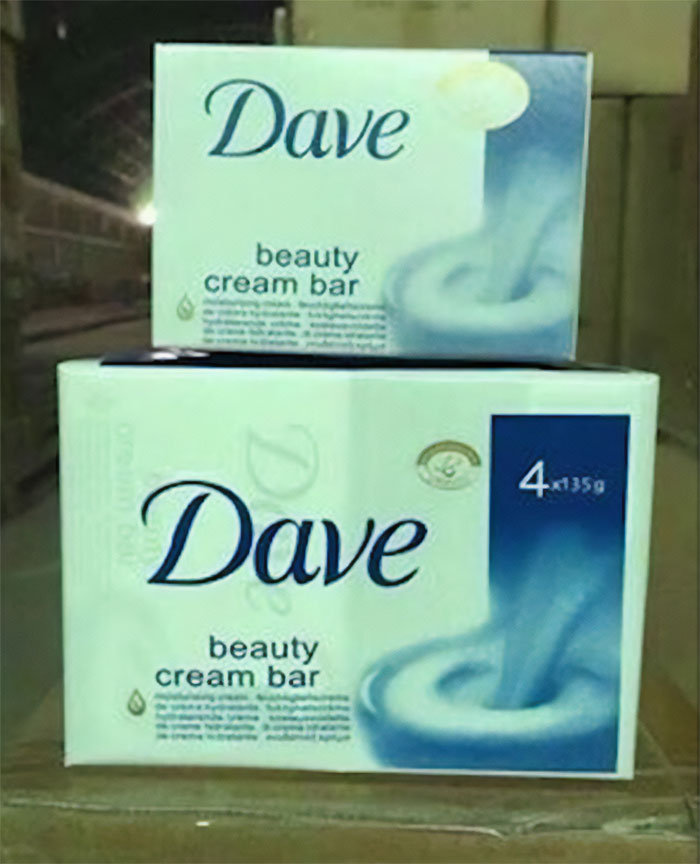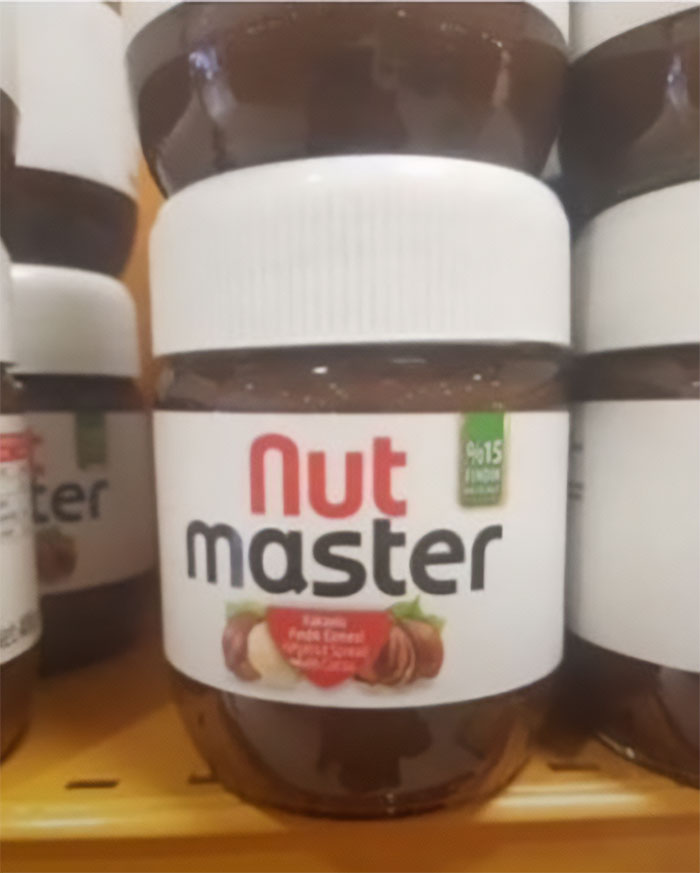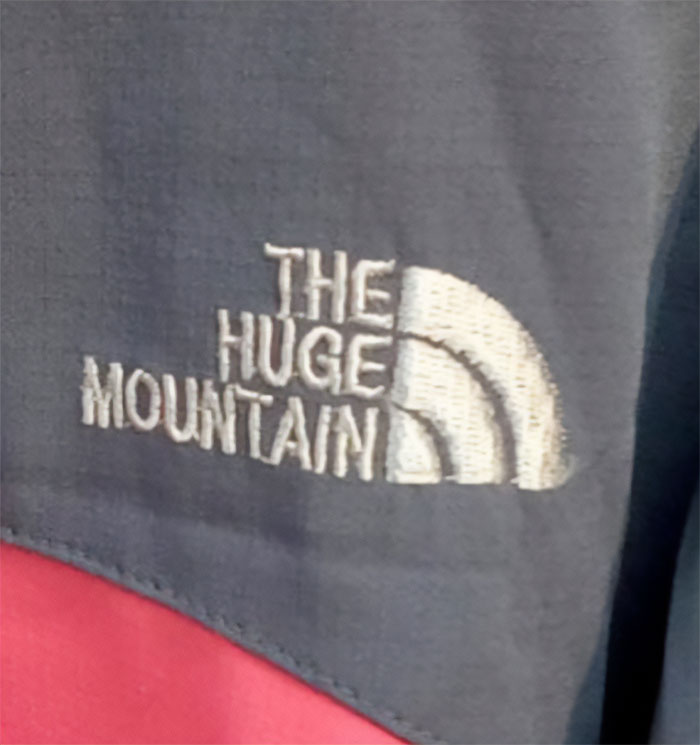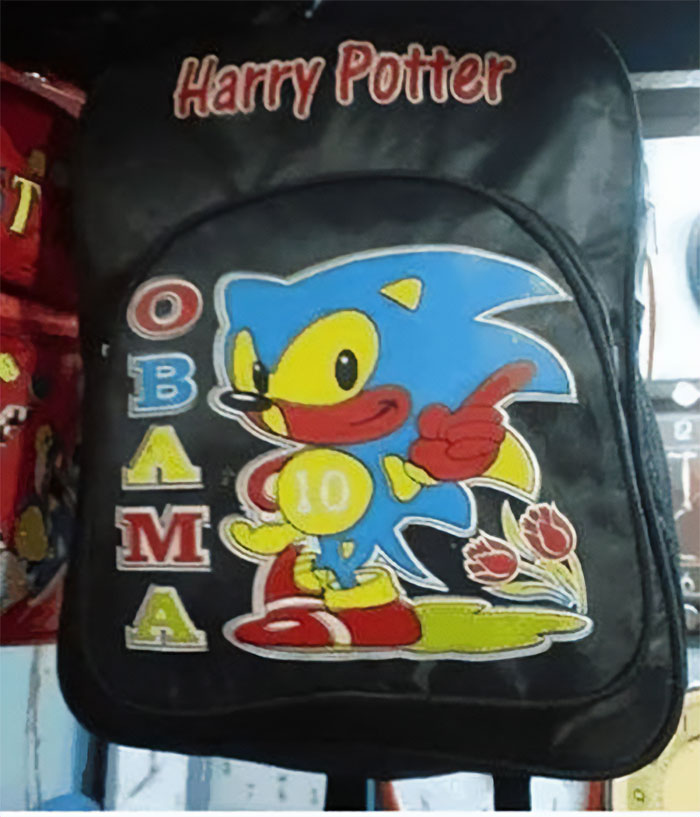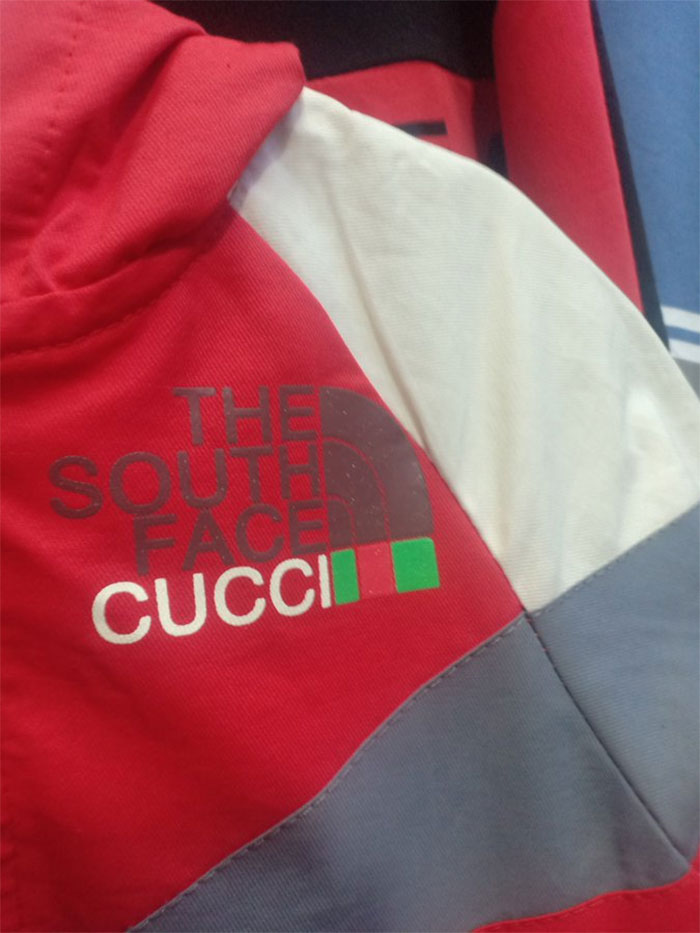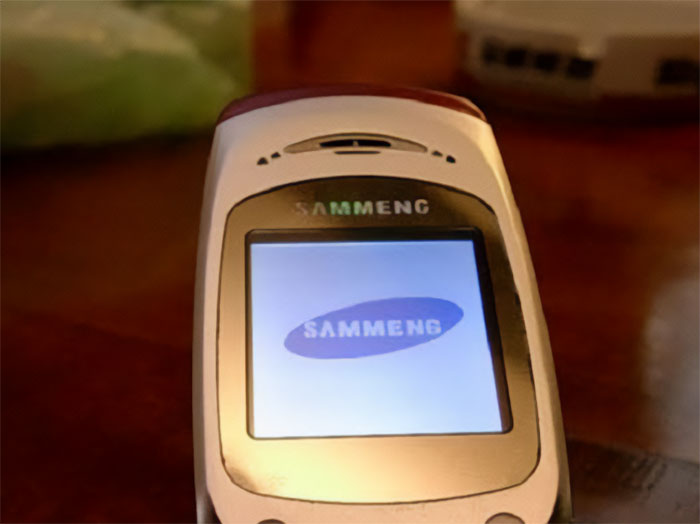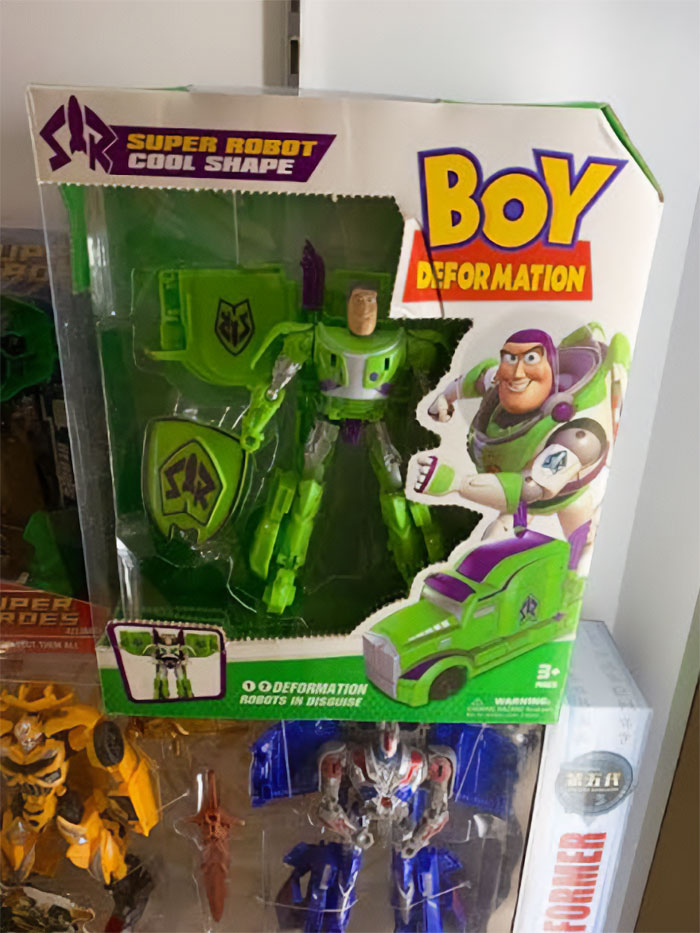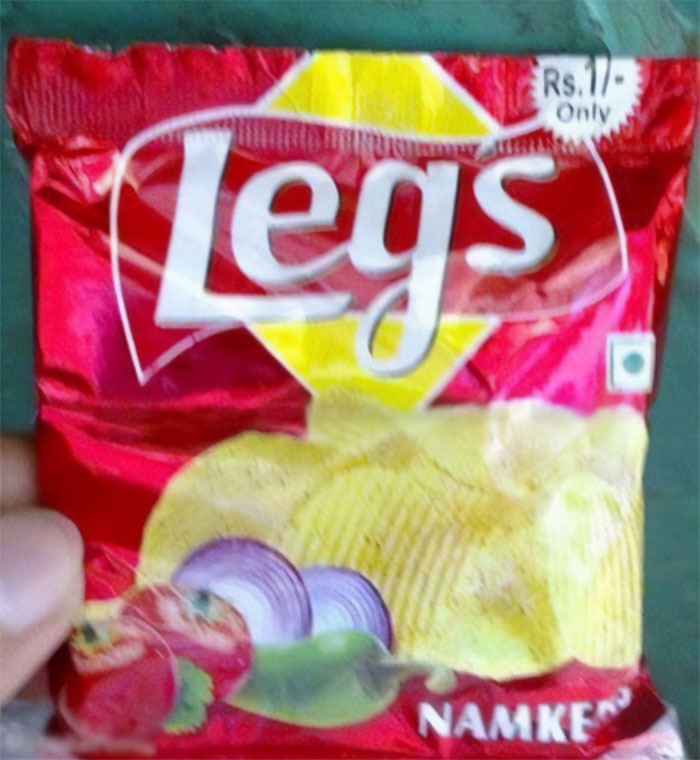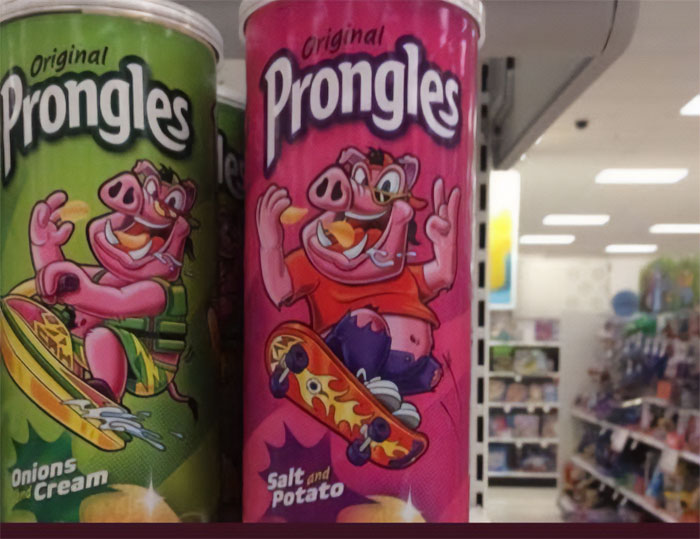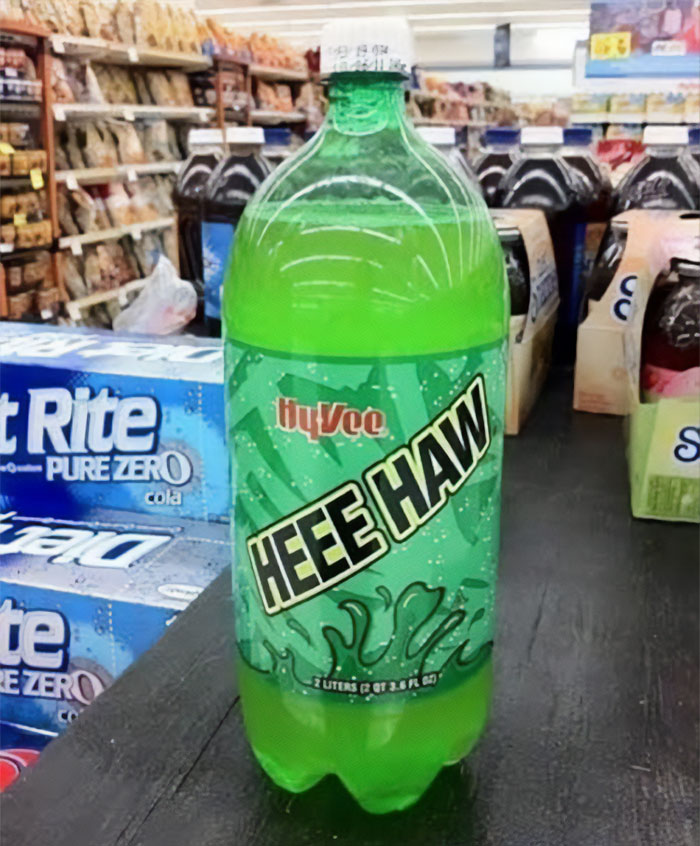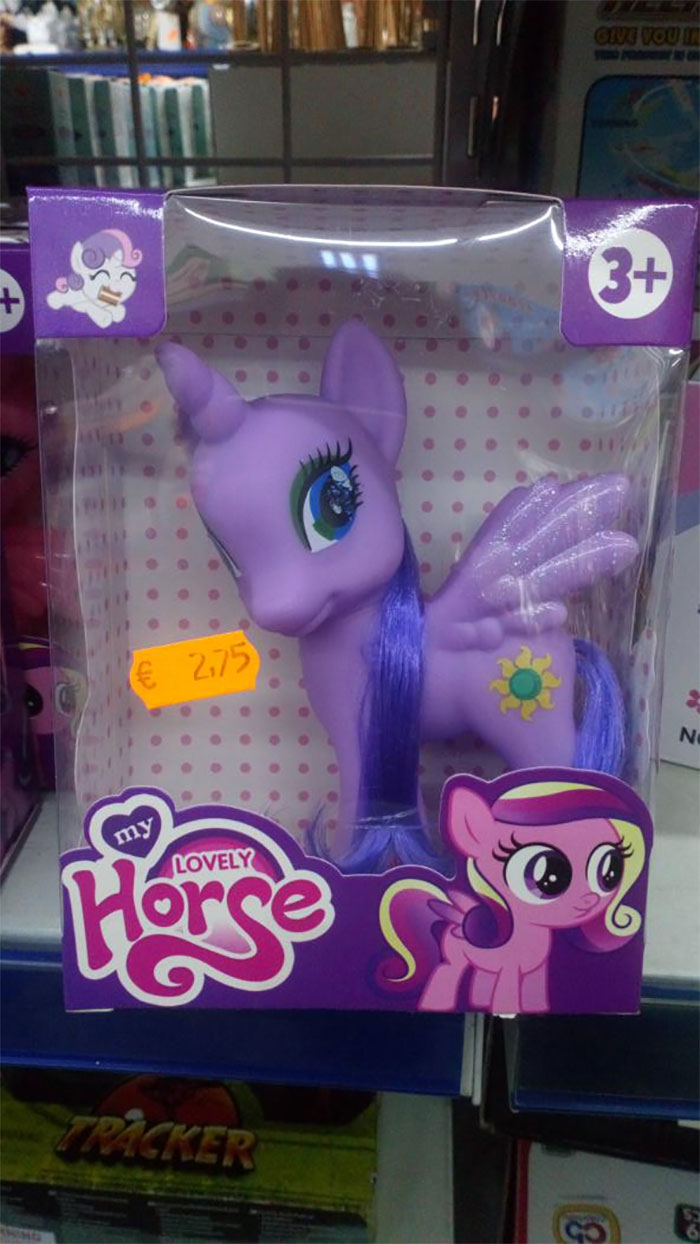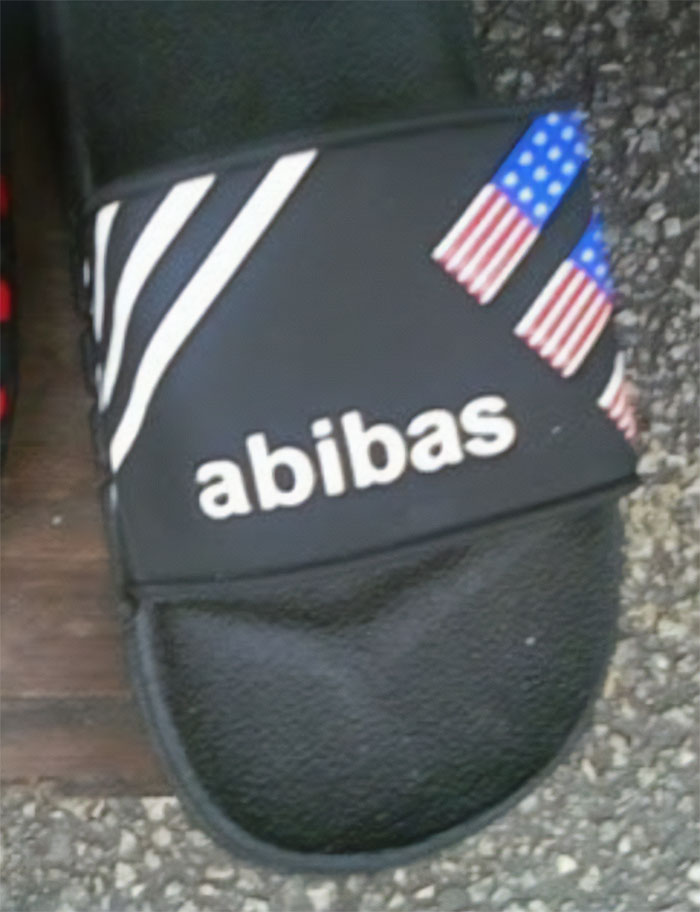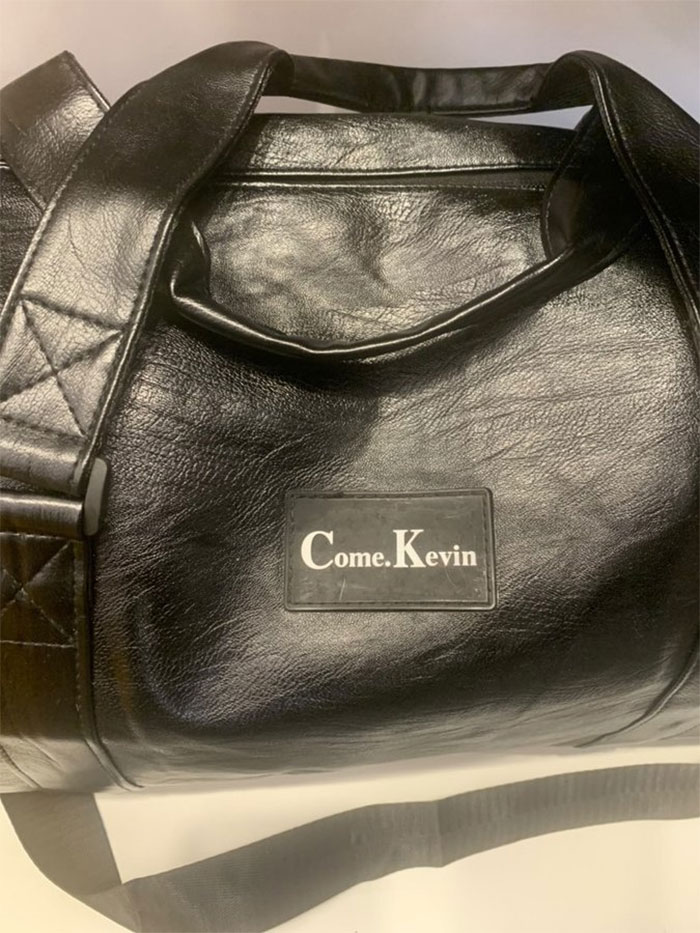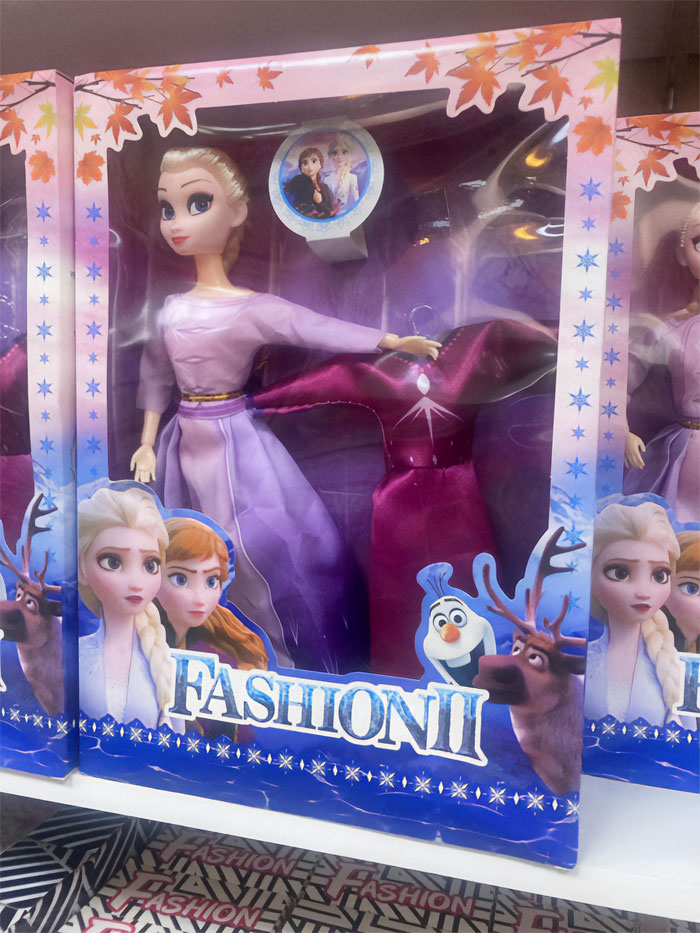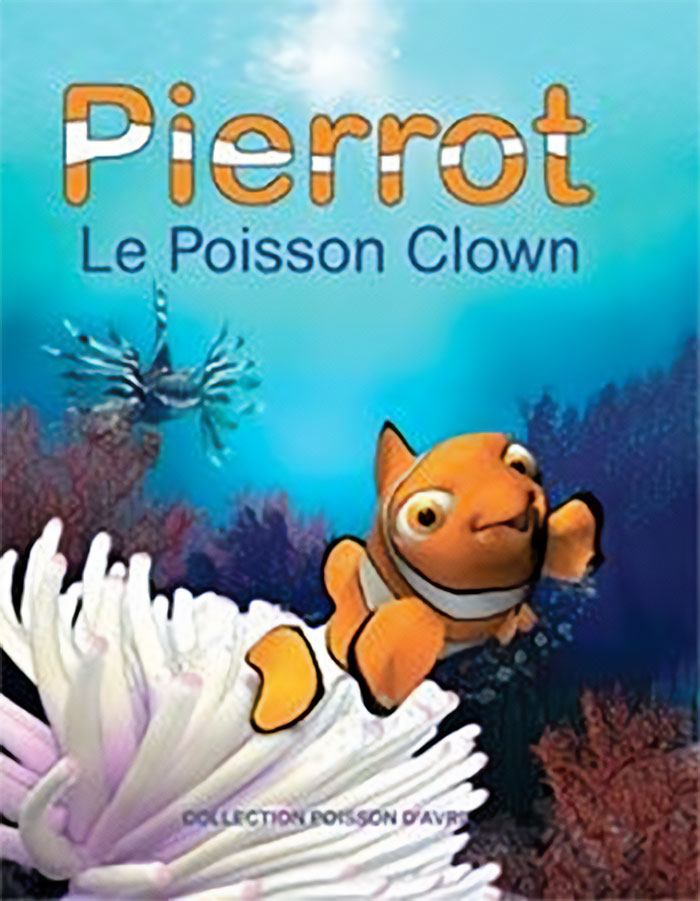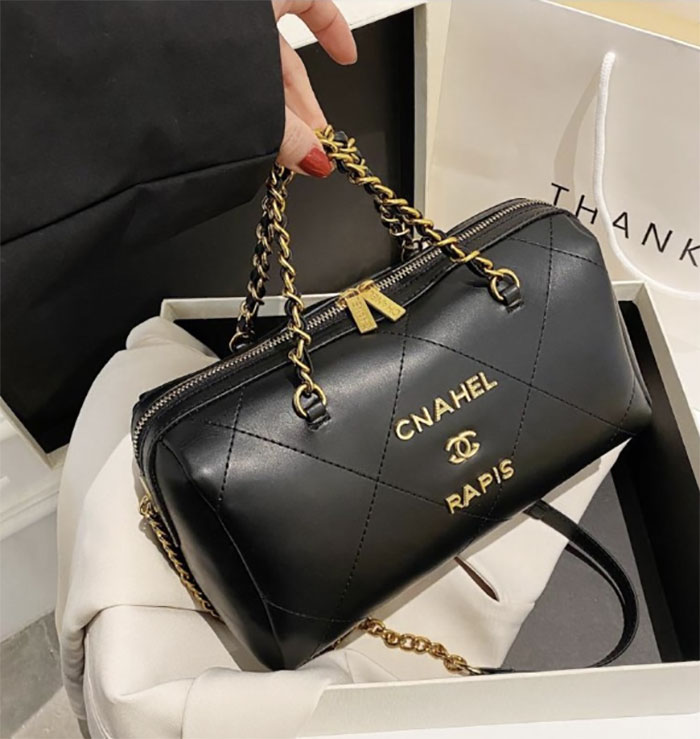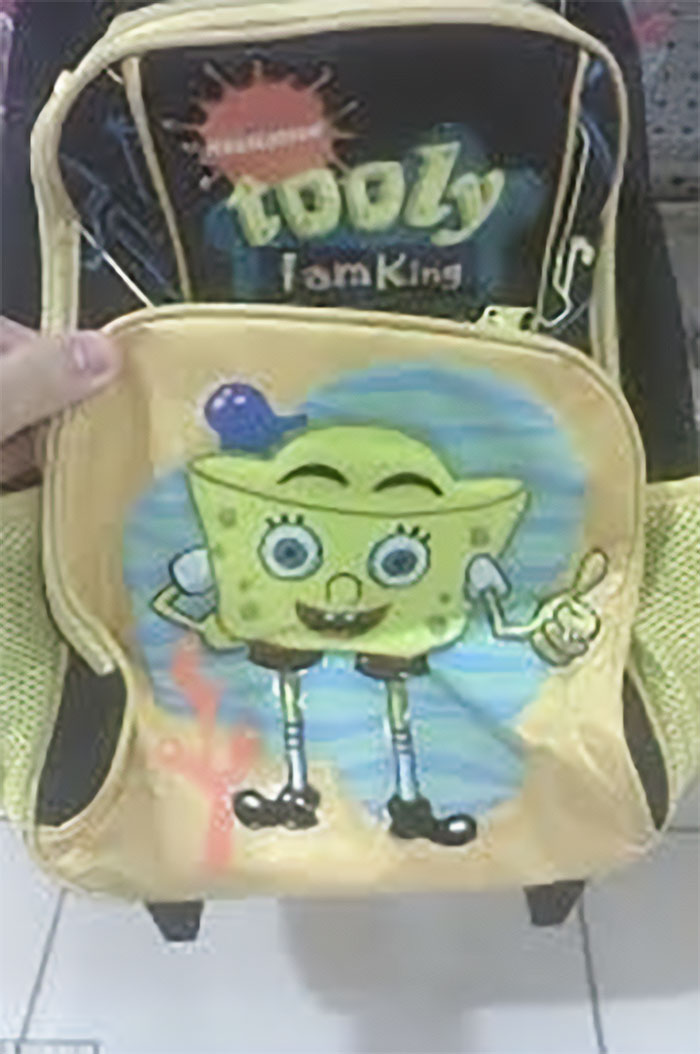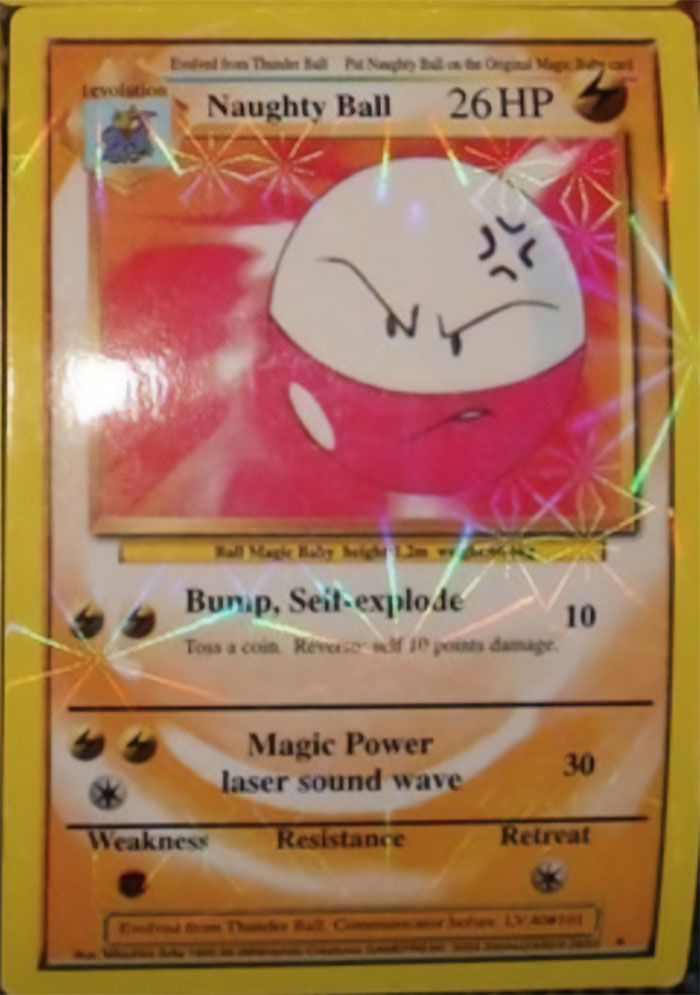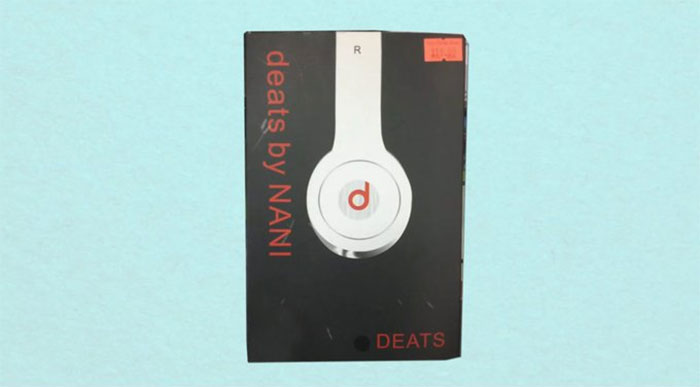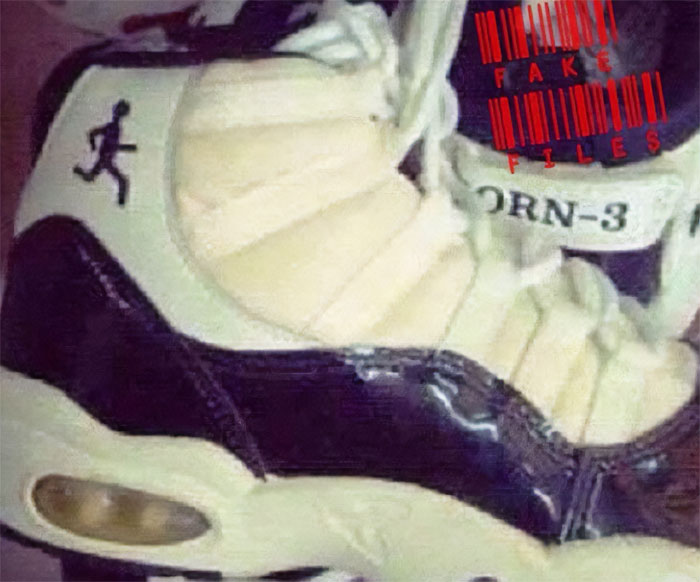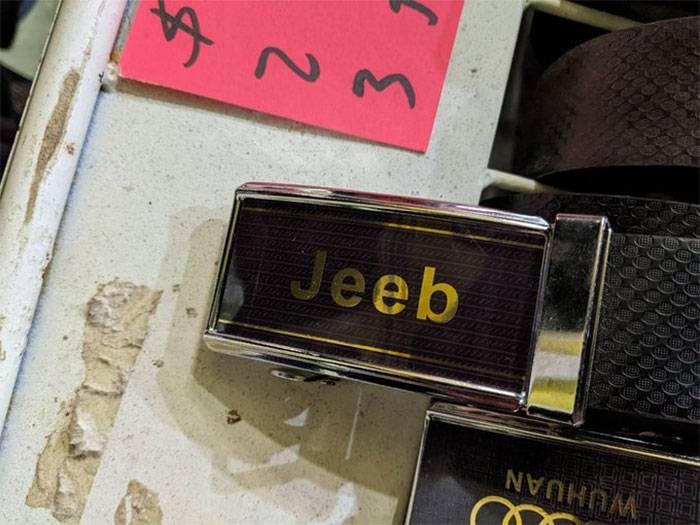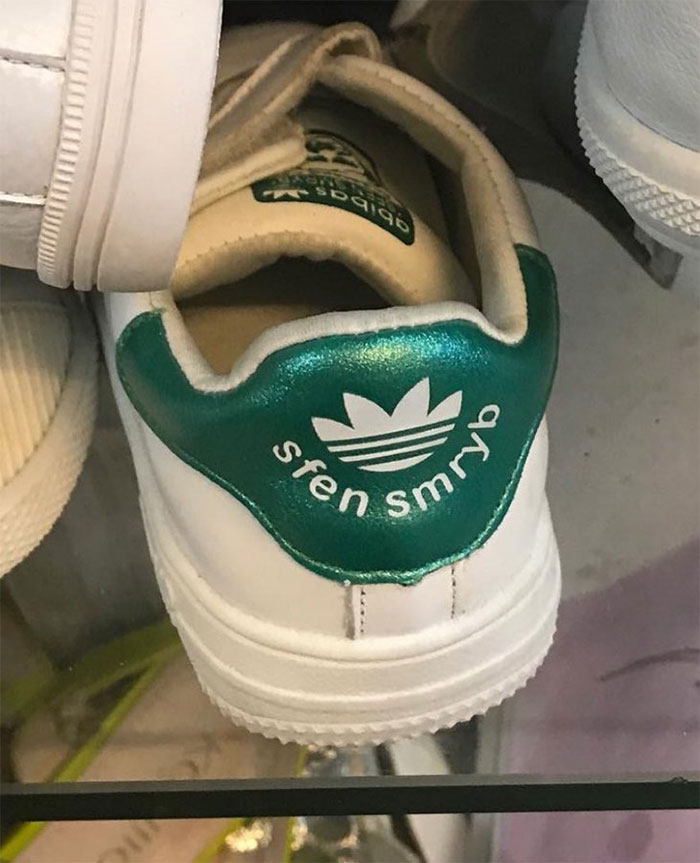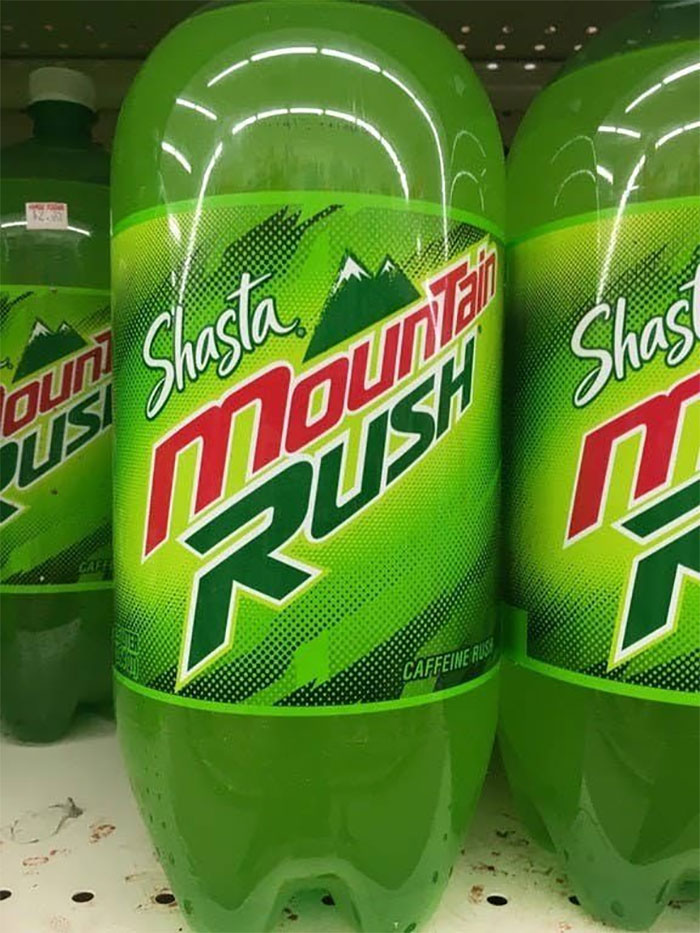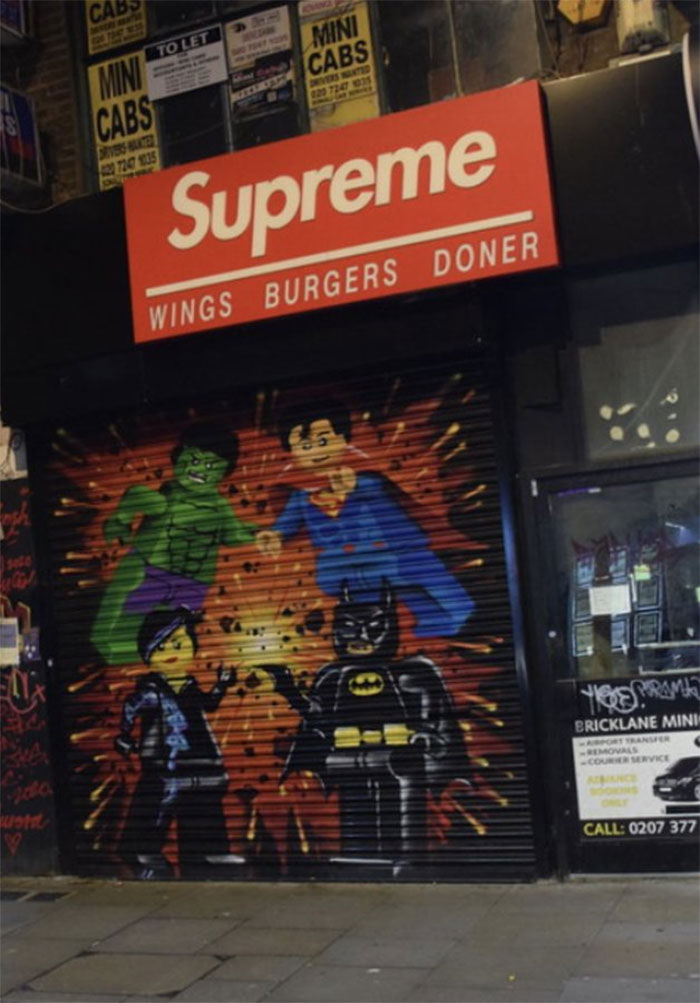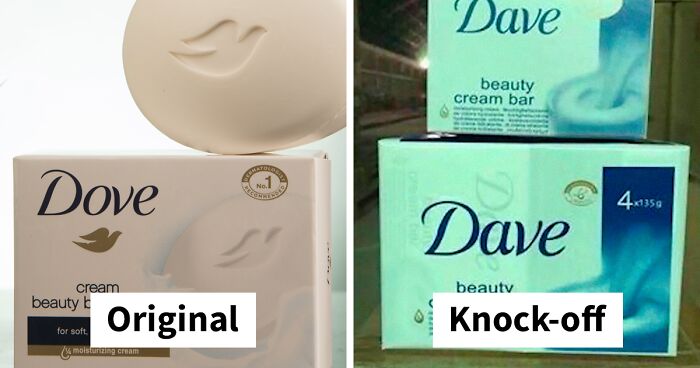
35 Of The Strangest Knock-Off Designs That Were Rightfully Shamed By This Twitter Account
Kat-Kot, Prongles, Abibas, The South Face, and thousands more gems of questionable origin can easily be found in shady little stores and marketplaces across the globe. Because let’s be honest, we live in a consumerist world, and every successful product is bound to inspire at least several hilariously terrible knock-offs that manage to find their way into the market. Imitation is the highest form of flattery, you say? Usually. But not always.
Fake brands set out on a venture to trick potential buyers into parting ways with their hard-earned money and often, they fail in the most glorious ways. So allow us to introduce you to the 'Strange Knock-Off Designs' Twitter account dedicated to ugly, weird, and totally absurd items ever found on shelves. With nearly 84k followers, it offers an incredibly entertaining collection of bottom-shelf brands' miserable attempts at making a dollar off of globally recognized names.
Below, we've wrapped up some of the silliest and surprisingly creative examples from the page to share with you all. So grab a can of Popsi and get ready for a wild ride as you scroll through this sampling of the best of the worst. Be sure to upvote the pics that made you laugh, and let us know what you think in the comments!
This post may include affiliate links.
Thanks to the growth of technology and improvements in manufacturing, counterfeit goods are now more accessible and affordable than ever. And it’s hardly surprising that encountering totally shameless and absolutely shoddy knock-offs that don’t even bother hiding it can be a pure form of entertainment.
However, these bad off-brands are actually a bigger problem than many realize. While the vast majority of consumers know what to expect when shopping under the counter for fake Ray-Ban sunglasses or Rolex watches at a fraction of the price, it is often believed to be a "victimless crime" that only hurts the biggest names in the market.
But according to Jay Kennedy, an Assistant Professor of Criminal Justice at Michigan State University, it harms countless individuals too. Whether it’s sweatshop workers who toil for hours on end without any legal protections, underpaid employees dealing with horrible conditions, or consumers themselves who face health issues due to fraudulent goods.
Turns out, Kennedy has spent over five years delving deeper into the issue of product counterfeiting and witnessed firsthand how consumers play a major role in the growth of the counterfeiting business.
See, the Global Brand Counterfeiting Report found that counterfeiters sold an estimated $1.2 trillion of fake goods globally in 2017 — a figure that was expected to reach past $1.8 trillion by 2020. The report stated that the losses businesses suffered amounted to $323 billion in 2017. Today, some estimates report that the trade in fake products is worth $600 billion per year.
While there’s no question that companies, their revenue, and intellectual property, are greatly damaged by the counterfeit culture, other brands — both legal and not — are making a dollar. "Profits earned from the sale of counterfeit goods benefit legitimate companies who manufacture, sell or distribute counterfeits, as well as illegal businesses and criminal organizations," Kennedy explained.
sammeng you get your a*s here or I make you into char siew bao
While the main focus now lies on getting online marketplaces like eBay and Amazon to take more action to remove knock-offs from their sites or try to stem the flow of goods over the border, Kennedy wanted to address the underlying aspect of this problem that often gets overlooked. "While this makes some sense given estimates that a large share of goods being sold on these sites are counterfeit, what it does not do is address the source of the problem: consumer demand."
To put it simply, as buyers want to get their hands on the best and newest original footwear, clothes, or gadgets, they create incentives for counterfeiters to create and sell fakes. "And while the majority of shoppers have no desire to purchase counterfeit products — and in fact are themselves victims of this deception — there are many who willingly buy counterfeit goods in order to get what they perceive is a bargain," the professor added.
If the right tube is 'Salt and Potato', and the left is 'Onions and Cream' does that mean the left tube has no potato in them Prongles?
Most of us know that it’s always a good idea to think twice before you buy something online. But, according to research, there are two main price-focused reasons why people succumb to the lure of questionable knock-off junk. First, they may feel that the cost of the desired legitimate item is too high, thus they settle for a low-quality fake that is significantly cheaper. Why buy Gucci when you can have Goochie, right?
Another basis for buying fake things is trying to be more frugal: "Even if they could afford the legitimate good, they choose the fake because it seems to be a savvy shopping decision."
"Regardless of the reason, their decision makes them accomplices to this illegal activity, providing counterfeiters with more financial resources. And more importantly, it can place them at risk for serious harm," Kennedy added.
Many consumers get lured by low prices and seemingly identical appearances. But if they were more aware of the dangers counterfeit goods bring to the table, they may be more reluctant in buying them online or in real life. Well-produced knock-off items may appear identical to the original product, but in reality, their quality, ingredients, and the questionable ways they were made have nothing in common with the original product — and can cause serious health hazards.
For example, as Ganda Suthivarakom pointed out in Wirecutter, there have been instances worldwide where fake chargers caused electrical shocks (and cheaply-made lithium ion batteries can damage your electronics and even catch fire), phony cosmetics made a buyer’s face swell up, and pet supplements sickened dogs.
Moreover, Immigration and Customs Enforcement and other law enforcement agencies have even reported finding bacteria and waste from both humans and rodents in counterfeit cosmetics. Reading about such threats is enough to send shivers down one's spine, and they should scare customers away from knock-off products for good.
So remember one universal truth — if something seems too good to be true, it probably is. Avoid falling victim to fake brands, as counterfeiting damages businesses, the economy, and the general population. But if you manage to stumble upon an impossibly hilarious one in real life, there's no harm in snapping a pic and poking fun at it online!
"If I'm wearing a bikini, were do I put my pokeballs? Teehee, women's secret!" -actual quote from a pokemon game
😂 Definitely not what I was thinking!
Load More Replies...This must be part of the porn parody deck I've heard so much about.
This was my 8AM o-chem teacher. Way too alert at that time of day and, likewise, he had zero sugar.
Is that some convoluted confession that their meat patties are chewy enough to bounce from a tennis racket?
Yea, the sign is funny but look at the awesome Lego mural underneath.
I fell for these one time. Thought I was getting a bargain, lol. dinacell-6...8d5f16.jpg 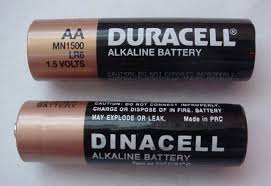
I fell for these one time. Thought I was getting a bargain, lol. dinacell-6...8d5f16.jpg 

 Dark Mode
Dark Mode 

 No fees, cancel anytime
No fees, cancel anytime 






